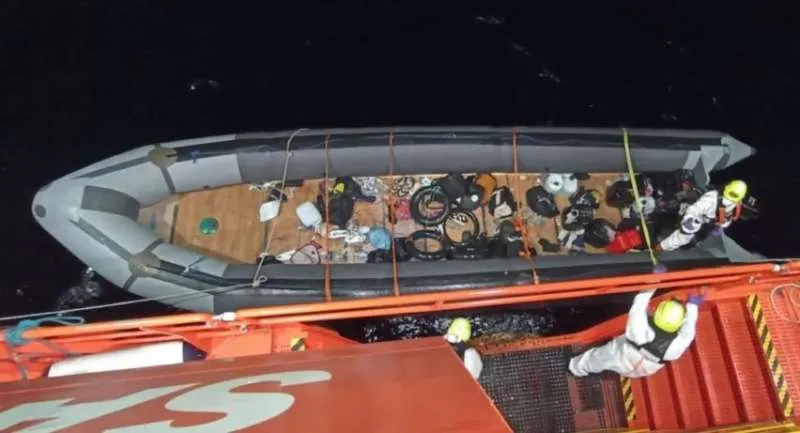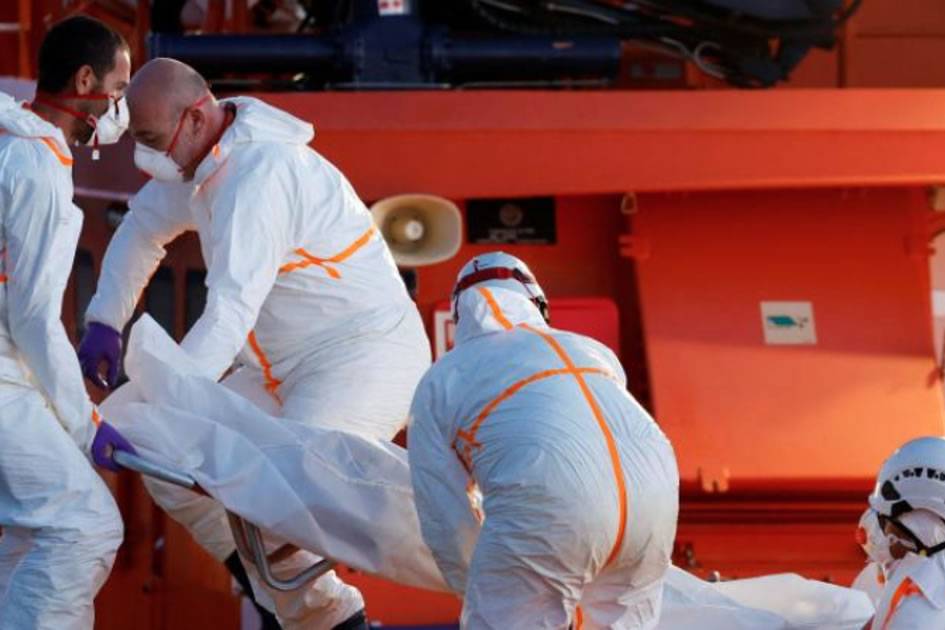More tragedy at sea: 377 people rescued and four dead crossing the Canary route
- 19-12-2024
- National
- Maritime Rescue
- Photo Credit: Europa Press
Maritime Rescue have reported that they have intercepted 377 people from seven small boats in the last 24 hours trying to cross the Atlantic to the Canary Islands. Tragically, four people lost their lives in the perilous journey.
The rescue operations, conducted in the Canary waters and Morocco's SAR (Search and Rescue) zone, highlight the ongoing crisis on the Canary migration route.
A Night of Intense Rescue Operations
At 2:30 this morning, Thursday, the Maritime Rescue Coordination Centre in Las Palmas was alerted by an ECO SIVE system about a vessel spotted 18kms south of Puerto Rico, in Gran Canaria. The rescue vessel Salvamar Macondo was dispatched and rescued 106 people aboard the fragile boat. The survivors were brought safely to the port of Arguineguín by 6:00am.
Meanwhile, the Salvamar Al Nair carried out multiple rescues during the night. At 11:20pm, it intercepted a boat carrying 59 migrants of sub-Saharan origin, located 129 kilometres northeast of Arrecife, Lanzarote. During its journey back, the Salvamar Al Nair rescued another vessel at 2:25am, carrying 60 migrants (55 men and five women), located 69 kilometres east of the island. All were taken to Puerto Naos in Arrecife for medical attention, arriving at approximately 5:30am.

Grim Discoveries in Morocco's SAR Zone
Three separate emergencies were handled in Morocco's SAR zone with support from the National Salvage Coordination Centre (CNCS) and the Las Palmas Maritime Rescue Centre. The Guardamar Urania played a critical role, rescuing 150 migrants from three makeshift boats, but the operation also uncovered the heartbreaking loss of three lives.
The first rescue occurred at 9:45pm last night (Wednesday), saving 49 people (41 men, four women, and one child) alongside the three deceased. As the Guardamar Urania headed to Arrecife, two additional rescues followed. At 1:25am, 46 migrants were saved, and at 3:35am, another 55 were rescued. All survivors and the deceased were transported to Puerto Naos, arriving around 5:00am.
A Humanitarian Crisis
These events highlight the ongoing humanitarian crisis faced by migrants attempting the perilous Atlantic crossing to the Canary Islands. The Atlantic route remains one of the most dangerous migration paths in the world, with overcrowded and unstable vessels leading to frequent tragedies.
Authorities continue to work tirelessly to save lives, but the situation demands urgent attention from the global community to address the root causes of these desperate journeys.
Other articles that may interest you...
Trending
Most Read Articles
Featured Videos
TributoFest: Michael Buble promo 14.02.2026
- 30-01-2026
TEAs 2025 Highlights
- 17-11-2025



























































